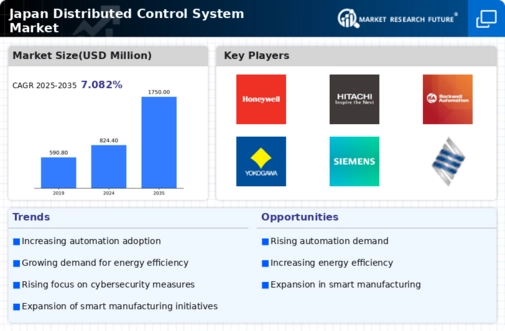Japan Distributed Control System Market Summary
The Japan Distributed Control System Market is projected to experience substantial growth from 824.4 USD Million in 2024 to 1750 USD Million by 2035.
Key Market Trends & Highlights
Japan Distributed Control System Market Key Trends and Highlights
- The market valuation is expected to reach 1750 USD Million by 2035, indicating robust growth.
- From 2025 to 2035, the market is anticipated to grow at a compound annual growth rate of 7.08%.
- In 2024, the market is valued at 824.4 USD Million, reflecting a strong foundation for future expansion.
- Growing adoption of automation technologies due to increased industrial efficiency is a major market driver.
Market Size & Forecast
| 2024 Market Size | 824.4 (USD Million) |
| 2035 Market Size | 1750 (USD Million) |
| CAGR (2025-2035) | 7.08% |
Major Players
Honeywell, Hitachi, Rockwell Automation, Yokogawa Electric, Mitsui Engineering and Shipbuilding, Siemens, Emerson, Kozo Keikaku Engineering, Panasonic, Toshiba, GE Digital, Mitsubishi Electric, Schneider Electric, ABB





















